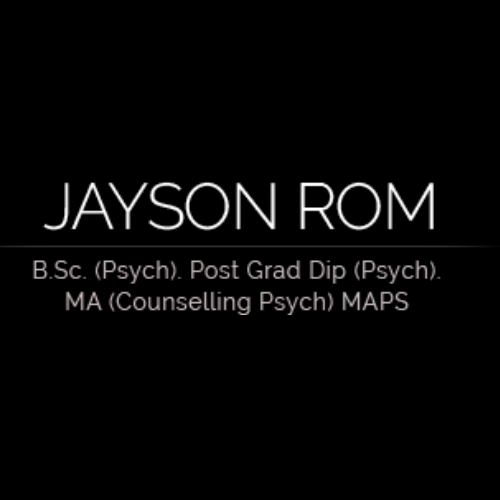Why Seeing a Psychologist Is Essential for Dual Diagnosis Treatment
 Jayson Rom
Jayson Rom
Dual diagnosis, also known as co-occurring disorders, refers to the presence of both a mental illness and a substance use disorder. For example, someone might be living with depression and alcohol dependence, or anxiety coupled with prescription drug misuse.
This combination is more common than many people realize. According to mental health statistics, individuals with mental illnesses are significantly more likely to develop a substance use disorder and vice versa. The relationship between these two conditions is often circular—one can fuel or worsen the other.
Because dual diagnosis involves two intertwined issues, treating only one part of the problem often leads to relapse or worsening symptoms. This is where the role of a psychologist becomes critical.
The Role of a Psychologist in Dual Diagnosis Treatment
Psychologists are trained mental health professionals skilled in diagnosing and treating emotional, cognitive, and behavioural disorders. In the context of dual diagnosis, their role extends beyond traditional therapy. They offer:
1. Accurate Assessment and Diagnosis
One of the most important first steps in dual diagnosis treatment is correctly identifying both conditions. It’s not uncommon for one issue to mask the other. For example, someone struggling with substance use may also be self-medicating undiagnosed depression or trauma.
A psychologist conducts a thorough psychological assessment to understand the root of the problem, differentiate symptoms, and offer a clear path forward. Accurate diagnosis leads to more effective, targeted treatment.
2. Integrated Treatment Planning
Once both disorders are identified, a psychologist creates an integrated treatment plan. This plan addresses both mental health and addiction, ensuring they are not treated in isolation.
For example, someone with anxiety and drug dependence might benefit from cognitive behavioural therapy (CBT) for managing anxious thoughts while also learning relapse prevention strategies. Psychologists work alongside other professionals—like GPs, psychiatrists, and addiction specialists—to ensure care is consistent and collaborative.
3. Therapeutic Interventions That Work
Psychologists use evidence-based therapies to treat dual diagnosis. These may include:
Cognitive Behavioural Therapy (CBT): Helps people identify and change unhelpful thoughts and behaviours.
Dialectical Behaviour Therapy (DBT): Useful for emotional regulation and reducing self-harm.
Trauma-Informed Therapy: Essential for those with past trauma or abuse.
Motivational Interviewing: Enhances readiness to change, especially useful in addiction treatment.
These therapies are often tailored to the individual’s needs and provide skills that can be used throughout recovery.
4. Emotional Support and Coping Skills
Living with a dual diagnosis can feel overwhelming. The emotional toll—guilt, shame, confusion, and frustration—is often heavy. Psychologists provide a safe, non-judgmental space for individuals to talk through their struggles and fears.
Therapy sessions also focus on teaching practical coping mechanisms. These include stress management, mindfulness, communication skills, and boundary setting. Over time, these tools help people regain control over their lives and maintain progress.
For those accessing addiction treatment Melbourne services, psychological support is often the missing link in long-term recovery. It brings emotional clarity and structure to a treatment journey that can otherwise feel chaotic and fragmented.
5. Relapse Prevention and Long-Term Recovery
Substance use disorders often come with a high risk of relapse—especially when the underlying mental health condition isn’t treated. A psychologist not only addresses short-term symptoms but works with individuals to create long-term strategies for success.
This might include setting healthy routines, building a support network, and identifying personal warning signs of relapse. The continuous therapeutic support provided by a psychologist can make the difference between relapse and resilience.
Why Dual Diagnosis Requires Specialist Care
Treating dual diagnosis is not as simple as addressing addiction first, then mental health—or vice versa. Both need to be treated together, in an integrated and thoughtful way.
This is why general addiction services or mental health clinics may not always be enough on their own. Individuals with co-occurring disorders need treatment providers who understand how these conditions interact—and psychologists are uniquely qualified in this regard.
Final Thoughts
Dual diagnosis is a complex and deeply personal challenge—but with the right support, recovery is absolutely possible. Seeing a psychologist is not just beneficial—it’s essential. Their expertise in mental health, emotional support, and behavioural therapy forms the backbone of effective dual diagnosis treatment.
If you or someone you love is facing both mental health issues and substance use, don’t try to go it alone. Seek help from professionals who understand the full picture and can guide you toward lasting recovery. A psychologist trained in dual diagnosis can help you take that vital first step forward.
Subscribe to my newsletter
Read articles from Jayson Rom directly inside your inbox. Subscribe to the newsletter, and don't miss out.
Written by

Jayson Rom
Jayson Rom
JR Psychology, led by Jayson Rom, is a distinguished mental health practice in Melbourne. As a Psychology Board Approved Supervisor, Jayson specializes in providing expert guidance to aspiring psychologists. With a focus on inclusivity, JR Psychology is a trusted resource for the LGBTQ+ community, offering supportive and understanding counseling services. The practice excels in anxiety and depression treatment, employing evidence-based approaches to foster lasting well-being. Additionally, JR Psychology addresses addiction, providing compassionate and effective treatment options tailored to individual needs. Trust JR Psychology for comprehensive mental health support in Melbourne.